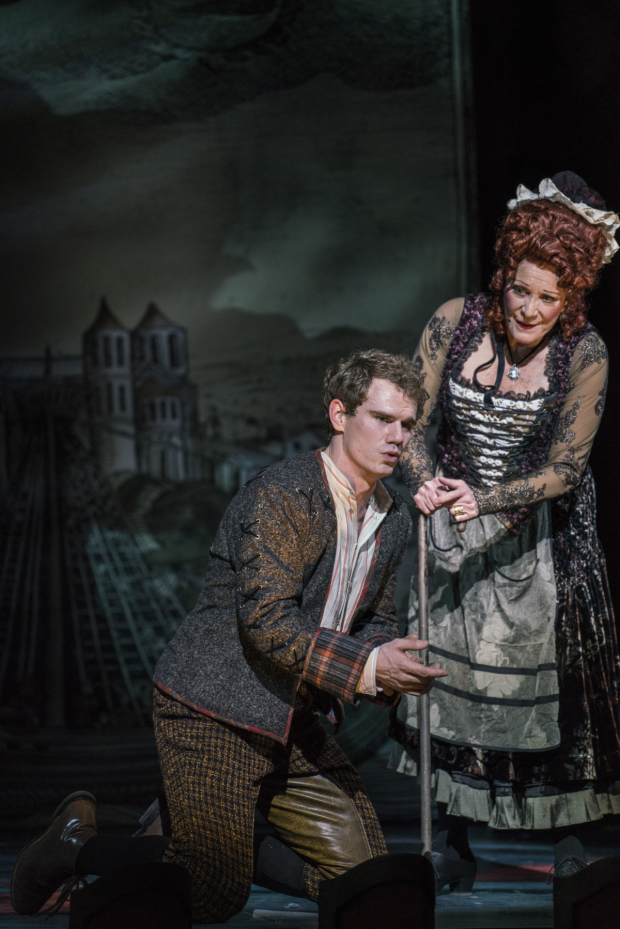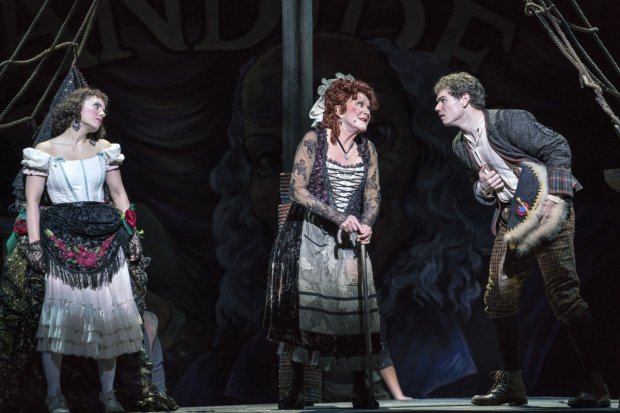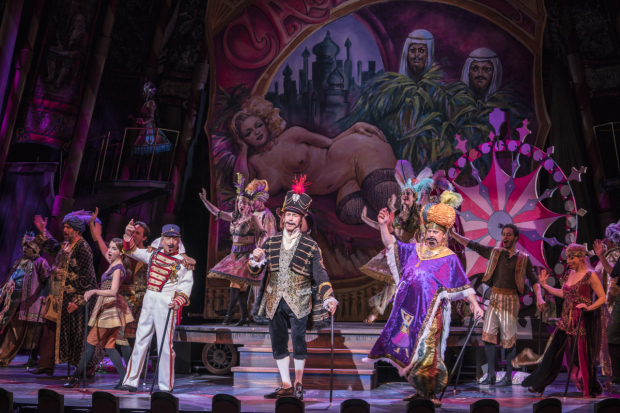Candide
New York City Opera revives Harold Prince’s decades-old production of Leonard Bernstein’s comic operetta.

(© Sarah Shatz)
When New York City Opera went belly-up in 2013, it left behind an esteemed legacy. Once dubbed "the people's opera" by no less than Mayor Fiorello La Guardia, it was the company that had helped to launch the careers of singers like Beverly Sills and Plácido Domingo, while also championing great American works and catapulting them into the popular operatic repertoire. Leonard Bernstein's shimmering operetta Candide, directed by legendary Broadway hitmaker Harold Prince, was among them.
So it comes as no surprise that the organization, hoping to spring itself back to life at Jazz at Lincoln Center's Frederick P. Rose Hall, has brought back this popular production for a brief run this month. What is surprising, though, is the quality. Historically, Candide has always been a good, but not a great, piece, a work with an extraordinary Bernstein score that feels too much like a musical to be an operetta, and too much like an opera to really be a musical. But this particular mounting, using designs and staging that date back more than 30 years, feels more like an "old warhorse" than a piece that's truly alive.
Candide has undergone several substantial revisions through the years. First performed on Broadway in 1956, it featured Bernstein's score, with lyrics by John La Touche and others, as well as a book by Lillian Hellman. That closed after 73 performances. Years later, Prince got involved as director, jettisoned Hellman's script, brought on book writer Hugh Wheeler, and added Stephen Sondheim as a lyricist. That version, presented on Broadway in 1974, ran for nearly two years. City Opera first presented an expanded edition in 1982, and later in 2008.

(© Sarah Shatz)
What the two versions do have in common (besides hits like "Make Our Garden Grow") is the story. Based on the novel by Voltaire, the comic work tells the tale of a young man, Candide (Jay Armstrong Johnson), who sets out on a journey across the world after being expelled from his homeland, his makeshift family seemingly killed during a war with a neighboring country.
Prince's Candide is high on low humor, a bawdy experience that requires everyone onstage to fire on all cylinders. But this iteration feels as though the director wasn't heavily involved. The laughs rarely land, the physical production (specifically Clarke Dunham's circusy big-top set and Judith Dolan's fairground costumes) looked shopworn, and the ensemble just looked tired. Throughout, it resembles a Broadway show in the middle of a long run, desperate for freshening up after being in the hands of associates for several months (in fact, associate director Arthur Masella gets billing over Prince in the program).
The cast, a blend of opera and Broadway veterans, is a mixed bag. Johnson is a charming Candide, though his voice is clearly more amplified than the other performers (similarly, sound designer Abe Jacob can't seem to find the sweet spot in the venue). As Cunegonde, Candide's true love who becomes a highly paid courtesan, Meghan Picerno is appealing, though in her hands the humor of her famous aria, "Glitter and Be Gay," never registers. Fortunately, there are three comedic icons in the mix, Linda Lavin as the Old Lady who befriends Candide and Cunegonde, and Chip Zien and Brooks Ashmanskas in a variety of roles. This trio knows how Candide is supposed to be played, and they do it with panache. On the other hand, Gregg Edelman overdoses his performance in the leading role of the traveling showman Dr. Voltaire.
At least there's one element that does its job expertly from start to finish: the orchestra, under the direction of Prince's son, Charles Prince. It's simply lovely to hear this score, especially Bernstein's astonishing overture, played by nearly 40 musicians. In the best of all possible worlds, the entire show would have risen to that level.

(© Sarah Shatz)








